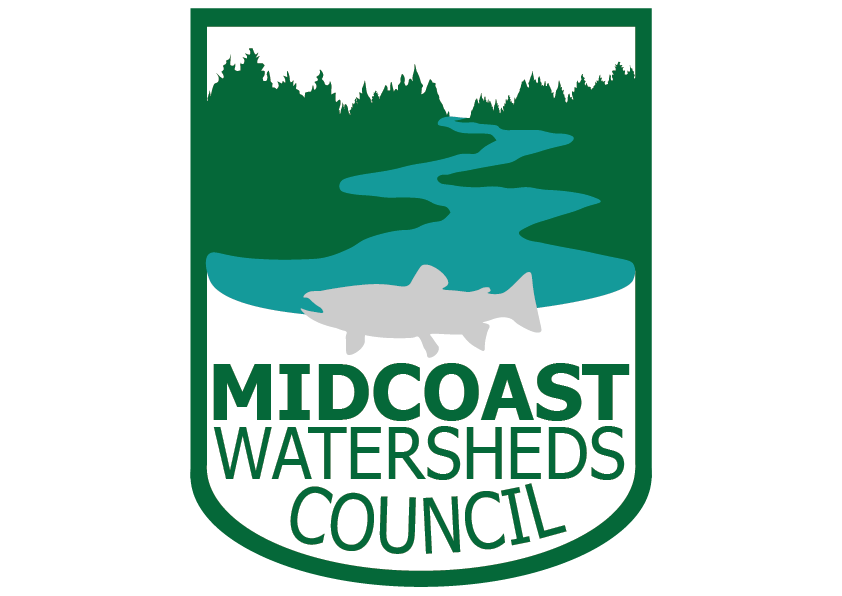Watersheds we Serve
from the crest of the Coast Range to the Pacific ocean, from the Salmon River at Cascade Head to Cape Creek at Heceta Head.
A “watershed” is an area of land from which rain or melting snow drains to a single point such as a river or estuary. Precipitation and runoff make their ways from the high to low elevations, as small tributaries flow into larger creeks, rivers, bays and eventually into the ocean.
The MidCoast Watersheds include the basins of the Salmon, Siletz, Yaquina, Alsea, and Yachats, as well as 28 smaller ocean tributaries. The forests, wetlands, and riparian ecosystems unique to this area can provide cool, clean water, critical habitat for fish and wildlife. In particular, when intact, these ecosystems support keystone species of Pacific salmon that have long been the backbone of the Pacific Northwest's culture and economy.
The approximately 1450 square mile (928,000 acres) area we cover can be divided into has 217 watersheds of approximately 4300 acres each. We have prioritized work in these "6th field watersheds”, emphasizing the improvement of conditions for fish, wildlife and people.
our history
The MidCoast Watersheds Council has generated over $19.2 million in local activity through employment and the purchase of goods and services associated with restoration work.
In 1998, MCWC was incorporated as a 501(c)3 nonprofit organization, and right away initiated strategic, basin-wide biologic assessment processes, alongside more singular stream restoration projects. This first rapid bioassessment took place in ‘98, a tidal wetland assessment was conducted the following year, and in 2001, a watersheds assessment was completed, all with the goal of prioritizing work in the watersheds. Restoration projects have included culvert replacements, livestock fencing, large wood placements, dike alterations, and riparian planting. By 2003, the budget exceeded $1 million, and in 2015, reached over $10 million.
Our Mission
The MidCoast Watersheds Council is a local non-profit organization dedicated to improving the health of streams and watersheds of Oregon’s central coast so they produce clean water, rebuild healthy salmon populations, and in turn support a healthy coastal ecosystem, economy, and culture.
We are governed by a Board of Directors and officers. Decisions are made by consensus of the Board of our regular monthly meetings. Members of the public are welcome to attend these meetings, beginning at 6:30 pm with guest speaker presentations, the first Thursday of each month. Check out our calendar page for information on upcoming community meetings, and check out our community presentations page for information from previous ones.
MCWC also has two standing committees open to public attendance: the Administrative Council Committee and the Technical Committee. The Administrative Committee keeps on top of finances of the organization, supervises staff, helps organize fundraising events, creates annual reports, and conducts outreach activities. Meanwhile, the Technical Team helps with assessments in the watershed and project prioritization, technical policy issues, and reviews and works to constructively improve grant proposals.
Celebrating 25 years of Mcwc!
THIS DOCUMENT IS A TRIBUTE to the collective efforts of the many individuals and groups who have provided the vision, science, passion, skills and work to restore salmon, clean water, forests and streams in the place we call home.”
Inside this document you will find information on and praise for the many partnerships, organizations, and individuals that have contributed to the conservation of the Central Coast landscape over the past 25 years. It is filled with great pictures, project highlights, maps of work done in each of the major watersheds, and long list of thank-yous to all of those involved. We hope you enjoy!


